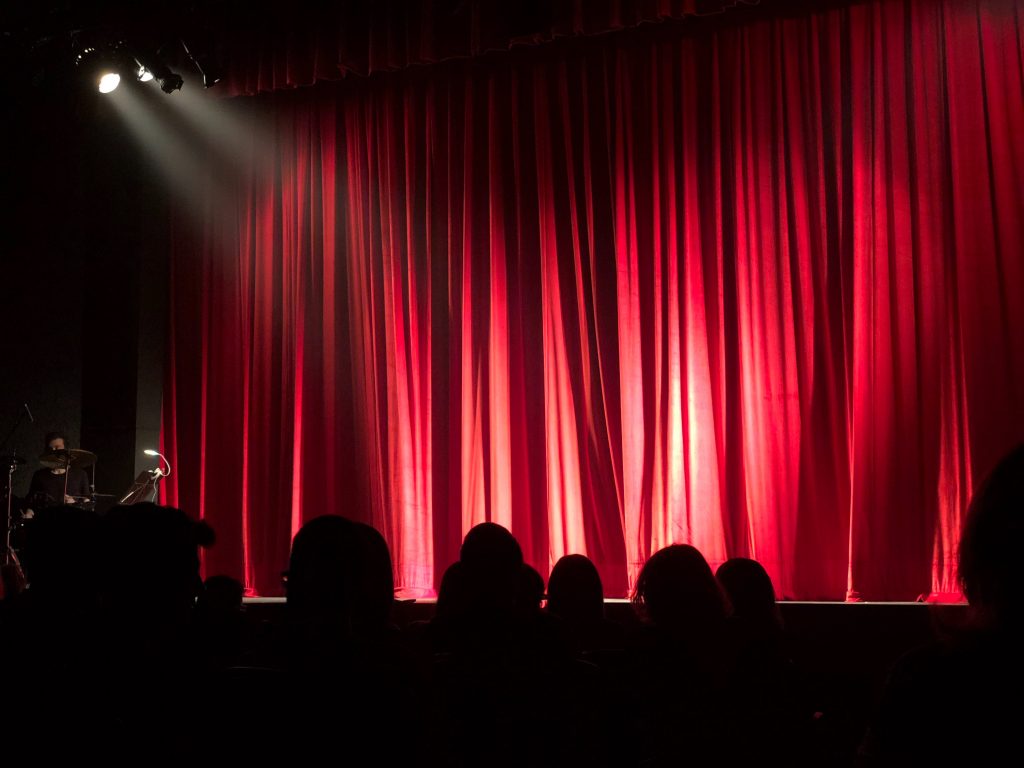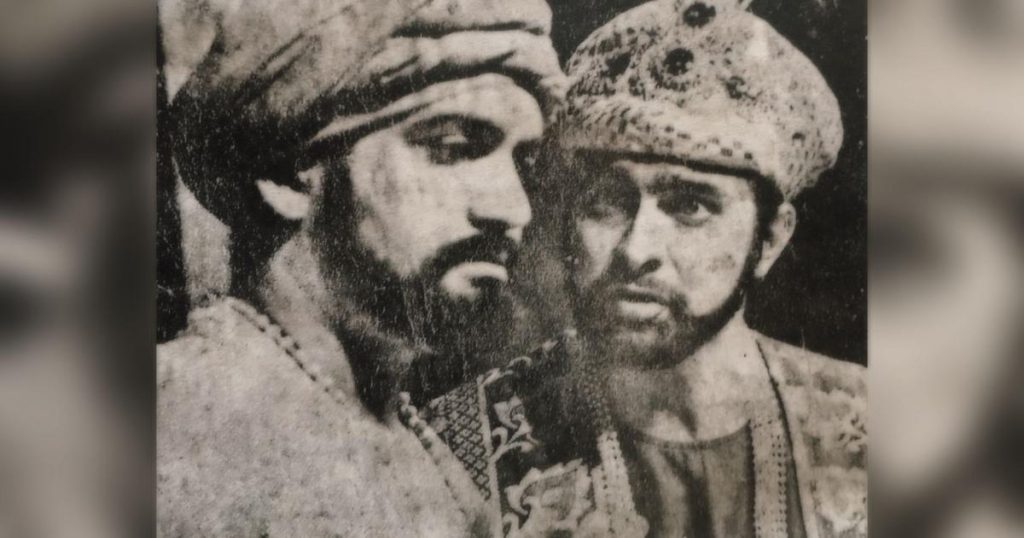In 1985 when I was in my teens, in a very large auditorium in the small town of Asansol, with over a thousand people in the audience I watched Saoli Mitra perform Nathbati Anathbat. This was a feminist retelling of the Mahabharata told from Draupadi’s perspective. Inspired by Irawati Karwe’s Yuganta, Saoli alone on stage, aided only by a chorus and musicians, moved deftly between the various characters of the epic deconstructing and reconstructing them for the audience. Getting under the skin of the story and its battle with justice, framed within the context of patriarchy and the terror it unleashes on women, she unraveled the complex life of Draupadi – the queen without a kingdom, a wife of five husbands without one to protect her. In the style of kathakata – a traditional storytelling practice of Bengal, Saoli shifted between being the kathakthakrun or narrator and the different characters – changing her voice, gait, body language and stance. In one particular scene – the Vastraharana, when Draupadi is dragged by her hair to the courts to be disrobed – Saoli manifested the different kinds of laughter of the various ogling men of the Kaurava clan and their allies. First a roar, then a sneaky chuckle, then a hissing slither, followed by a raucous outburst – this piece of the performance stunned the audience into absolute silence. The terrifying registers of Saoli’s ‘laughters’ became eerily chilling audio metaphors for our collective experience of the varyingly grotesque male gaze we endure as women in society. Nathbati Anathbat, the title of the performance literally means someone who has protectors/keepers but is still an orphan – the condition that Draupadi finds herself in throughout the epic.
I remember coming home dazed. That was the first time I had seen an entire play being performed by a single woman on stage in a contemporary Bangla production, and it left an indelible mark on me.
The impact of that experience I still carry. Since then, I have wanted to understand what happens when a woman walks on to a stage alone, and stays there on her own for a considerable amount of time to tell us a story. While I have witnessed some traditional performances like the Nangyarkoothu being performed by women alone, and monologues written by Dario Fo in the 1970s – A Woman Alone, and The Same Old Story – I was drawn more to contemporary productions where women, directed by themselves or others, perform solos written by themselves or others in various languages in India. Throughout the history of theatre just being on ‘stage’ has meant many different things to women. From being a forbidden ground initially, it was then stigmatized for those brave women pioneers who dared to set foot on it. The stage over time has meant profession, vocation, expression of talent and artistry, realizing one’s individuality, and most importantly – a respite and escape from the humdrum of domestic life and unending chores – a space, unreal and temporal as it may be, but still a land of freedom. As if crossing that imaginary line that defines the perimeter of a stage is in itself a defiance, a transgression. Over the past couple of decades, I have witnessed more and more women walk the stage solo and have tried to delve into the experience of these performances as an audience to understand what this means for us witnessing it.
We are not used to the figure of a woman alone, on her own. Be it in our families or the larger society, the single unhitched woman disturbs us, makes us suspicious. Unfastened is essentially loose, and that is almost dangerous. As women we are told from childhood not to be alone – don’t stay alone, walk alone, be alone. The fear of what might happen to us without protection is drilled into us making us dependent on both structures and relationships of patriarchy. So, when a Deepika Arwind in No Rest in the Kingdom or Pallavi MD in C Sharp C Blunt take the stage alone and stay there alone throughout the performance, it makes the audience revel, curious and uncomfortable depending on who they are. The very fact that they are on their own without people or props seems somewhat aberrant and wholly irregular. I suspect many women in the audience in different ways also cross that infamously labeled lakshman rekha with the performers.
Women are also taught to shrink, shrivel into spaces that are given to them, be almost invisible unless called to decorate rooms. Men do the manspreading, a term I have really grown to find apt to describe how they take up humongous amounts of space in private and public arenas. Women on the other hand move to the corners, sides of containers, both for fear of unwelcome attention as well as their own sense of how much space they are meant to occupy. So, when Anuja Ghosalkar in Lady Anandi takes up all the space on stage on her own, or Jyoti Dogra in Black Hole creates and occupies various territories of experience on stage, it simply feels like sitting in the audience one can relax one’s body and allow for the limbs to fall around our selves without having to be vigilant about its protective boundaries. It feels like the sweet release of tension when one stretches one’s entire frame to lie down on grass.
Women are not given time. Asked to hurry up, be precise, not loiter on words or emotions, women are told not to prolong what can supposedly be done more efficiently in shorter time spans. Bosses and lovers get impatient and many women feel not listened to as attentions wane when they explain things their way in long form. We have to be quick, sure footed on expressions, and rush to be done with. Our value lies in us being productive – at home and outside. Mid-sentence we are paused, silenced and cut off repeatedly. We are interrupted. As if to tell us we are wasting time and should get back to work. But when Sudipta Majumdar as and in Shikhandi takes all the time she needs to become from the actor who has walked on to the stage to the character full of desire, hope and lament, the audience waits for her, with her. Then again when at a point in the play she breaks down in grief, the audience pauses with her giving her the time she needs. There is no urgency or rush, as the entire auditorium lingers with her in her slow transformation. The same happens when Nisha Abdulla in We Push the Sky narrates anecdote after anecdote moving from song, memories, and recitations with partial sentences and fragments of thoughts. The audience takes the journey with her at her pace. It’s as if one can breathe.
Maya Rao walked the Walk in Delhi after the rape and death of Jyoti Singh in 2012. The unbelievable, vicious questions raised after Jyoti was raped included why she was out so late into the night walking on the streets of our capital city, accusing her of being the one who brought this onto herself. This victim shaming is quite common in our society – to blame us for the violence that happens to us – for what we wear/ not wear, say/ not say, act/ not act. But when Maya walked and she walked alone in the performance arena, we, women across the country walked with her, demanding our freedom of movement, our right to public spaces without fear – even in the middle of the night!
I realised that day that sometimes when a woman walks alone on stage, millions walk with her – solo and in solidarity – in streets, parks, bridges, fields, balconies and in their heads.
The moment of a woman alone on stage to me is a moment rare and precious in life – it is a woman, ‘uninterrupted’. And a woman uninterrupted is a woman free.







